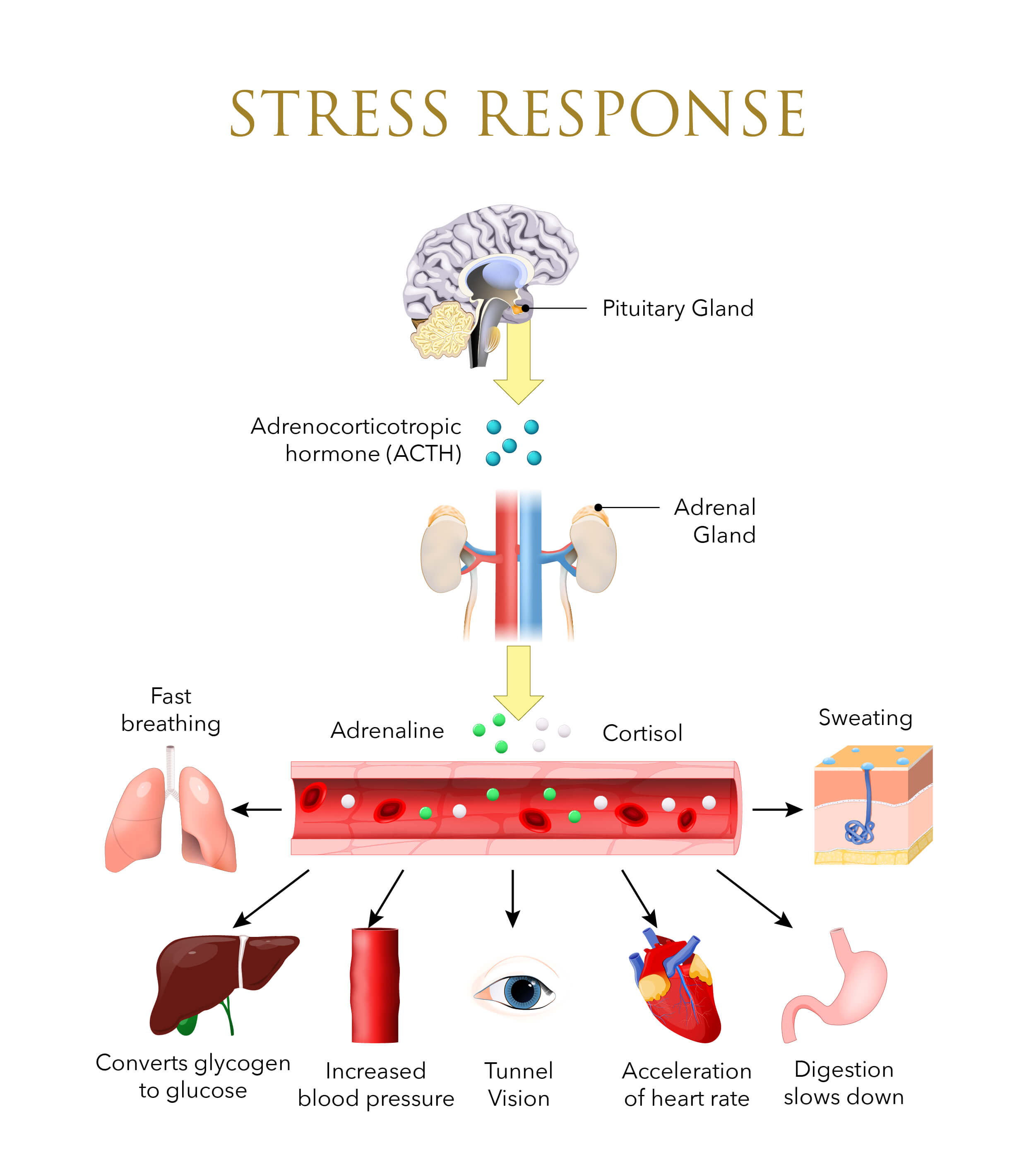Daily Meditation Can Improve Your Skin

Your skin care routine is important when it comes to keeping your skin in good shape, but, in order for your skin to really thrive, you need to look a little deeper…
Meditation has been proven to support and improve the health of the skin, especially when done on a daily basis.
How exactly can meditation help your skin?
Here’s what you need to know…
What is Meditation?
Let’s take a quick look at what meditation actually is…
To put it simply, meditation transforms your state of mind. The practice makes use of a set of techniques to do this, with all of them enabling you to take charge of your mind and focus your attention.
Meditation is nothing new – it has been practiced for centuries all over the world, and there are now different types of meditation that have arisen from this.
How Does Meditation Help the Skin?
Meditation is known for having so many health benefits. It can do everything from improving the memory to increasing immunity, making you a much healthier person overall.
However, many people don’t realize that meditation can also directly benefit the skin in a few different ways…
1) Meditation Slows Down the Skin Aging Process
The aging process is something that many try to avoid for as long as possible. After all, nobody wants to be dealing with fine lines, wrinkles and sagging skin if this can be prevented!
Well, if you are looking for a way to slow down, and even reverse, the skin aging process, meditation could be your answer.
How does meditation help with skin aging?
One interesting way in which it does so is by targeting a specific protein in the skin. This protein is known as NF-kB, and its job is basically to regulate the rate at which the skin ages.
This protein has been of interest to scientists for several years now. Studies that have been carried out on mice have discovered that turning this protein off can literally reverse the signs of aging. Results showed the following:
- Thicker skin
- Firmer and smoother skin
- Almost no inflammation
What does this have to do with meditation?
Because studies have found that the process of meditation impacts that very same protein. It pretty much turns this protein off, which then enables your skin to take on a much more youthful appearance.
2) Meditation Reduces Inflammation
Inflammation is another factor that significantly contributes to skin aging. Not only that, but inflammation triggers numerous other skin conditions too, from acne to eczema to rosacea.
Inflammation in your skin is something that you should try to avoid as much as possible, and meditation can help you to do this.
How does meditation help to reduce inflammation?
Well, there are certain genes in your body that are responsible for inflammation.
Meditation suppresses these genes, therefore preventing inflammation from developing.
3) Meditation Lowers Cortisol Levels
Do you know what cortisol is?
It’s the hormone that your body produces whenever you are feeling stressed. This hormone can actually be beneficial in the short run. After all, this is what puts the body into flight or fight mode, and would have helped early humans to survive dangerous situations.
However, in this day and age, stress arises from a variety of situations. Whether this may be a missed deadline at work or tension in a relationship, stress is now something that people are experiencing multiple times a day.
This means that the body pretty much always has cortisol flowing around it, which is seriously bad news for your skin.

Why is cortisol so bad for the skin?
It has a number of detrimental effects, such as:
- Acne breakouts – cortisol encourages the skin’s sebaceous glands to increase their oil production. This then leads to clogged pores, inflammation and breakouts
- Facial redness – stress can cause the capillaries in the skin to expand, which can then make the skin appear red and puffy
- Wrinkles and sagging skin – cortisol destroys the collagen and elastin in your skin, which are the two main structural proteins that keep your skin looking firm, smooth and elastic
- Dry skin – cortisol prevents the skin from retaining enough water, which then leaves the skin looking and feeling dry and dehydrated. This also accelerates the rate at which fine lines and wrinkles develop
As you can see, cortisol is something that you want to minimize as much as possible, and meditation can help you to do this.
How exactly does meditation lower cortisol levels?
In a couple of ways…
Firstly, meditation has a direct effect on your sympathetic nervous system, reducing its activity. This, in turn, lowers the levels of cortisol in your body. One study found that after four days of meditation, cortisol levels dropped by around 20%.
Regular meditation will also prevent you from feeling so stressed in the first place. It helps to clear the mind and encourage mindfulness, while also enabling you to solve problems much more efficiently.
4) Meditation Clears the Body and Skin of Toxins
Toxins are something that you definitely do not want in your body.
In addition to leading to numerous skin problems, from acne to eczema, toxins also damage your overall health in so many ways.
Of course, prevention is always better than cure, but, no matter how hard you try, it is pretty much impossible to completely avoid coming into contact with toxins.
So, how do you get rid of toxins from your body?
Well, many people don’t realize that 70% of the toxins in the body are released when you breathe. The other 30% is taken care of by your bladder and bowels.
Therefore, if you are not breathing properly, your body will not be able to eliminate those toxins. This then causes them to build up in the body, resulting in a wide array of problems.
Deep breathing, which is a form of meditation, is all you need to do to encourage your body to better release its toxins.
These cleansing effects can be noticed pretty quickly, usually after just a few days of regular meditation. Research has found that people who meditate have slower respiration rates overall, even when they are not meditating. This then increases the amount of toxins that the body is able to expel.
5) Meditation Boosts Blood Circulation
Blood circulation is so important when it comes to the health and appearance of your skin.
Why?
Because your blood is what delivers nutrients and oxygen to each one of your skin cells. Poor circulation means that your skin is not receiving as much of these nutrients and oxygen, and this prevents it from functioning optimally.
Studies have found that meditating for 30 minutes a day can significantly increase blood flow in the face, with this effect becoming visible after just five days of meditating.
This not only ensures that your skin cells are fed with everything that they need, but it also encourages the body to flush out toxins and waste, while giving the skin a natural rosy glow at the same time.
6) Meditation Encourages Healthier Lifestyle Choices
Meditation makes a person more mindful, which is something that is then carried through into other aspects of life too.
Mindfulness helps a person to make better decisions when it comes to their overall health, and this is then reflected in your skin.
For example, those who meditate are more likely to make healthier choices when it comes to their diet. Fresh and whole foods play a larger role than processed, sugar-filled foods, and this can really help the skin to thrive.
Meditation is also a form of exercise, which brings with it so many skin and health benefits. Those who meditate are also more likely to keep themselves more active, which can really boost the health of your skin.
7) Meditation Improves Sleep Quality
Many people don’t realize how quality of sleep and skin health are so directly linked together, but the two really do go hand-in-hand.

During the day, your skin is constantly working to protect itself from environmental damage, whether this may be from the sun, from pollution, or from anything else.
Once you go to sleep at night, your skin can then turn its focus onto healing and regenerating. The time during which you sleep is when cell division and production happens the most, with this also being the time during which your skin produces new collagen and elastin.
Those who have trouble getting enough quality sleep at night have likely noticed the impact that this has had on their skin. From allergies to acne to psoriasis, sleep deprivation can have such a detrimental effect on your skin.
How does meditation help to improve sleep?
It encourages the body to relax, while also reducing stress. The way in which it enables you to fully focus on your breathing can also help to prevent your mind from dwelling on other thoughts, which would have otherwise kept you awake.
You don’t need to save your meditation for the night to enjoy these effects either…
Research has found that meditating for just 20 minutes a day can help to encourage relaxation at night, promoting a deeper sleep.
Getting Started with Meditation
Never meditated before?
Don’t worry, it’s easy to get started!
As mentioned earlier, there are several different types of meditation, and some of these even involve moving around, but the best way to begin is with a simple technique…
All you need is somewhere quiet and peaceful to sit, along with a timer.
Once you have that, follow these steps:
- Sit down in a comfortable position, keeping your back straight in order to encourage deep breathing
- Set your timer for five minutes
- Focus on your breath by closing your mouth and concentrating on it as it enters and exits your nose. This is the step that people find the hardest, as this is when the mind tends to wander. Whenever this happens, gently bring your attention back to your breath, focusing on everything from the way it feels as it leaves your body to the small sound that it makes as it enters in
Once your timer sounds, you are done.
Now that you have gotten through your first meditation session, you can then work on increasing the amount of time you meditate for. It is always better to start off with just a few minutes, as it will take several short sessions to learn how to train your mind to really focus in on your breathing.
You can slowly increase the length of your meditation sessions, but don’t feel pressured to do this for too long either, especially if you simply do not have the time for it.
Meditating for just five to ten minutes a day will still be extremely beneficial to your skin, although 20 to 30 minutes does seem to be the optimum amount.
Finding it difficult to meditate?
There are many meditation apps out there that could help you with this.

A few quality apps to consider include:
- Headspace – one of the more popular meditation apps, Headspace boasts hundreds of guided meditation routines, along with mini meditation sessions for when you are short on time
- Calm – these guided meditation sessions range from 3 minutes in length to 25 minutes. The app also offers up breathing exercises and nature sounds to encourage better sleep at night
- The Mindfulness App – this app’s five day guided meditation routine is a great way to get started, with these sessions ranging from 3 minutes to 30 minutes in length
- Buddhify – offers up more than 200 meditation techniques, with many of these easy to practice while you are on-the-move
- 10% Happier – this app keeps meditation simple, with new content added each week to ensure that the practice stays fun and exciting, rather than getting boring
Meditation can make a huge difference to the health and appearance of your skin, and it is now easier than ever to get started with this. You only need to meditate for a few minutes a day to notice the difference, just make sure that you do keep doing this each and every day, as regularity really is key here.

